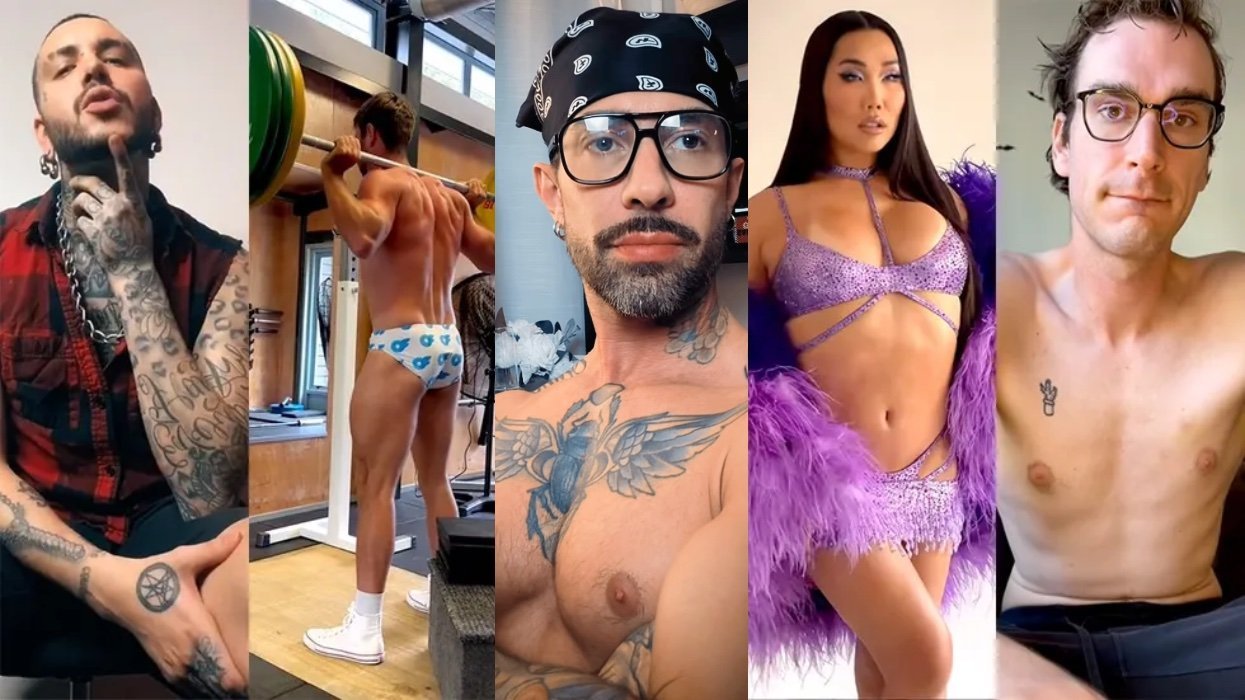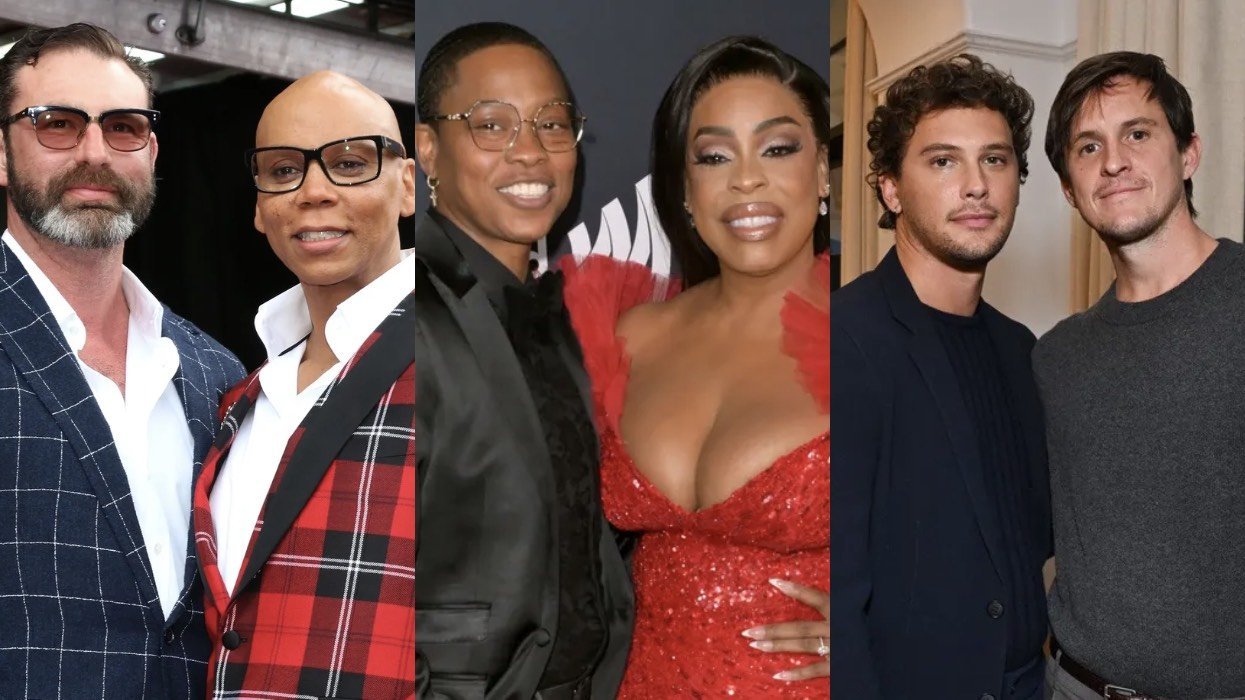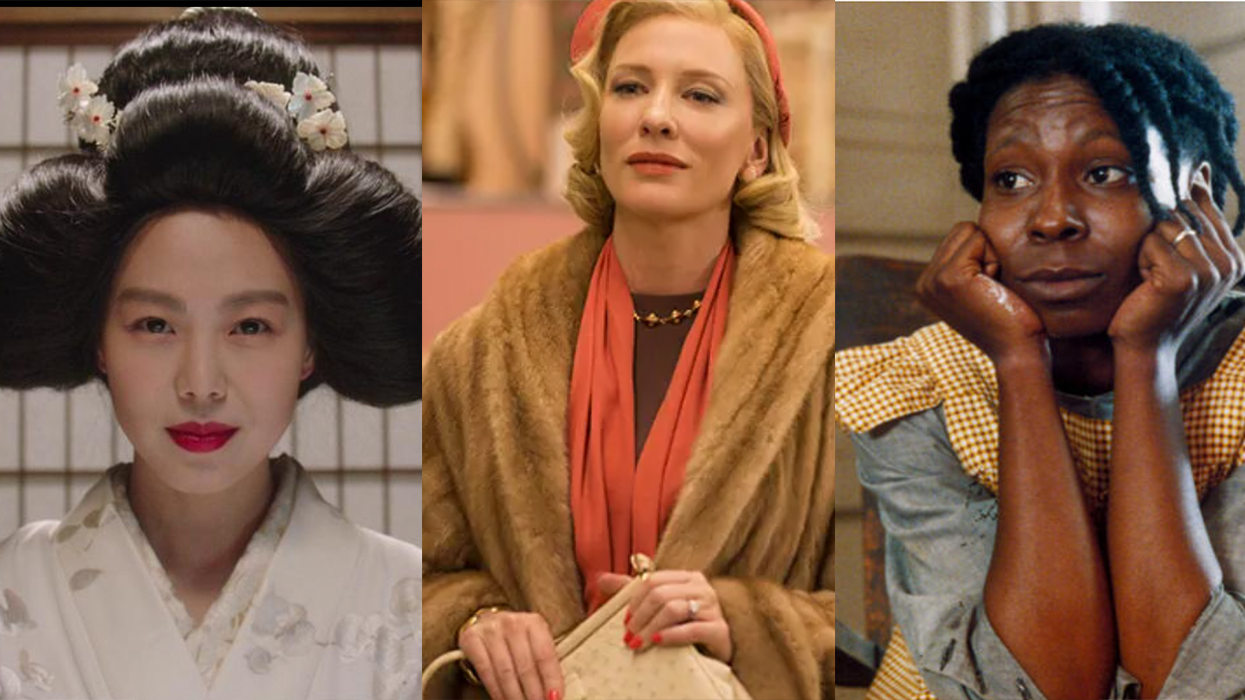"Don't ask, don't tell" repeal champion Rep. Patrick Murphy is one of countless advocates, activists, and allies who helped to shape LGBT news in 2010. Here are some of the most memorable from a historic year.
It’s always gratifying to end the year on a high note, especially when it’s one of the biggest gains ever for the gay rights movement: the legislative death of “don’t ask, don’t tell.” No doubt a significant victory for President Barack Obama, whose commitment to fierce advocacy had been repeatedly questioned while repeal efforts stumbled.
While a now-divided Congress casts doubt on further federal LGBT gains in the next session — and while setbacks for marriage equality in places like New York and New Jersey are still stark reminders of what’s yet to be achieved — there's much to celebrate in 2010. Though by no means exhaustive, this list gives a glimpse of those who shaped LGBT news, seasoned activists, newfound allies, and impartial-but-incisive jurists alike.
Pennsylvania representative Patrick Murphy
Many heroes converged at the Department of Interior in Washington, D.C. to witness President Obama sign “don’t ask, don’t tell” repeal into law on the morning of December 22. But one politician received more rousing applause than any other, to the point where the voices of many exuberant ceremony attendees were rendered hoarse: outgoing Congressman Patrick Murphy, who spearheaded repeal efforts in the House. The Iraq War veteran never had any doubts that he’d see an end to the discriminatory policy. “I used to jump out of airplanes for a living, so I was always confident that my chute was going to open up,” he told The Advocate. “Paratroopers don’t quit.”
More on next page...
\\\
(continued)
Constance McMillen
We all deserve to love whomever we choose. That right should equally apply to choice of prom dates. In March, the Itawamba County School District in Mississippi canceled its school prom rather than allow high school senior Constance McMillen to attend with her girlfriend. A federal judge ruled that McMillen’s first amendment rights were violated. She was later excluded from a private prom but attended another event with a handful of equality-minded students, including two with learning disabilities. “They had the time of their lives,” McMillen said. “That’s the one good thing that came out of this, [these kids] didn’t have to worry about people making fun of them [at their prom].”
Dan Savage and Joel Burns
While the nation reeled from multiple reports of LGBT youth committing suicide, Dan Savage (pictured left) created what will certainly be remembered as a groundbreaking online social action campaign: the It Gets Better Project, a series of countless YouTube videos created by ordinary citizens and celebrities alike. One of the most moving was incidental — a televised speech by Ft. Worth city councilman Joel Burns (right), who at a meeting recounted his own traumatized youth while offering hope to those who are currently being bullied. “You will get out of that high school, and you will never have to deal with those jerks again if you don’t want to,” he said, choking back tears. “You will find and you will make new friends who will understand you. And life will get so, so, so much better.”
More on next page...
\\\
(continued)
Ted Olson and David Boies
Two ultra-famous attorneys who argued opposing sides of Bush v. Gore a decade ago undeniably helped to mainstream the marriage equality movement this year. In January, the duo put the issue on trial in San Francisco before U.S. district judge Vaughn R. Walker, who eight months later declared in a sweeping opinion that California has no interest in discriminating against gay and lesbian couples who wish to marry — couples including the plaintiffs in the case, Kristin Perry and Sandy Stier; and Paul Katami and Jeff Zarrillo. Proposition 8, the antigay state ballot measure that passed in 2008, violated fundamental rights, Walker found. The case is now before a three-judge panel of the ninth circuit court of appeals.
Kye Allums
In 1977, Renée Richards became the first openly transgender athlete to play professional tennis. Decades later, little had changed when it came to the visibility of such athletes — until Kye Allums appeared on the scene. The George Washington University junior came out in November as transgender, becoming the first UCAA Division I athlete to do so. Allums has not yet taken hormones and continues to play on the women’s team — one that has shown fierce loyalty to their courageous colleague on the court.
More on next page...
\\\
(continued)
Lady Gaga
If "equality is the prime rib of America,” then we know who we’d hire to be our butcher. The 24-year-old subversive siren has never been reticent to exalt all things gay, but it wasn’t until this year that Lady Gaga truly put her influence (and a Twitter following that dwarfs President Obama’s) to work. She presided over rallies, called senators, was chaperoned by gay service members to the MTV Video Music Awards, and struck up a Tweetship of sorts with Senate Majority Leader Harry Reid, who thanked her directly after the successful vote.
Senators Joe Lieberman and Susan Collins
When the Senate earlier this month failed a second time to pass the national defense bill — of which “don’t ask, don’t tell” repeal was attached — many pundits and players alike declared the movement to end DADT dead for 2010. It took the work of many on the Hill, including two senators — a Republican from Maine and a Democrat-turned-Independent from Connecticut — to put pessimism on hold by introducing a stand-alone repeal bill. At the December 22 ceremony, Collins (pictured right) in particular was welcomed as a hero.
More on next page...
\\\
(continued)
Hillary Clinton
President Obama has presided over an astounding gay civil rights milestone this year. But it hasn’t made us forget about one of the fiercest advocates working in the executive branch today: Secretary of State Hillary Clinton, who declared in a 2010 pride speech that “gay rights are human rights,” who has pushed tirelessly to secure benefits for gay State Department employees, who wore purple on the October 20 remembrance day for gay teens lost to suicide, and who recorded an “It Gets Better” video before it became nearly de rigueur for other high-ranking, like-minded officials.
Maj. Margaret Witt and Maj. Mike Almy
We could devote an entire “people of the year” list for to service members and advocates who had the guts to speak up and fight hard against “don’t ask, don’t tell”: advocacy groups like Servicemembers Legal Defense Network and Servicemembers United; members of Congress who stood up while others wavered; discharged members of the armed forces who were arrested for taking a stand against bigotry — we are all indebted for their work. And we found two repeal voices quite powerful for their simple resonance: Maj. Margaret Witt (pictured left), an Air Force flight nurse who won her federal lawsuit for reinstatement in September; and Maj. Mike Almy, another decorated Air Force officer who was booted after 13 years of military service when his private emails were searched (on his last day of active duty he was taken off base by a police escort). Almy has filed his own reinstatement suit along with coplaintiffs Staff Sergeant Anthony Loverde and Petty Officer Second Class Jason Knight.
Though both Witt and Almy received plenty of media attention, neither is a grandstanding activist. In interviews, Witt is a woman of few words. But the sum of those words is infinitely powerful: I love my work, I love to serve, I just want my job back. Almy took a story of profound personal tragedy and made a compelling case to the country on why this devastating policy needs to end. Perhaps it’s no coincidence that nearly 8 and 10 Americans now support gays serving openly in the armed forces.
More on next page...
\\\
(continued)
Victoria Kolakowsi and Theresa Sparks
2010 was a year of multiple historic firsts for the transgender community. Among the most powerful: the first openly transgender person elected to the bench. Victoria Kolakowski (pictured left) narrowly won her November race for Alameda County Superior Court in California’s East Bay, and as Transgender Law Center executive director Masen Davis saw it, “We’re fortunate that the voters judged Vicky on her merits.” Kolakowski joins another Bay Area transgender victory in the midterm elections: Theresa Sparks (right), who was elected to the San Francisco Board of Supervisors.
Robin McGehee and Kip Williams
Some bristle at their tactics; others revel in them. One thing’s for sure: When GetEqual's Kip Williams and Robin McGehee (pictured center, along with backers Paul Yandura, left, and Jonathan Lewis, right) launched the direct action group this spring, they did it with a bang — organizing a group of activists and gay service members including Lt. Dan Choi and Capt. James Pietrangelo II, who handcuffed themselves to the White House gates in protest of "don't ask, don't tell." A symbolic statement, to say the least. The group has an uphill battle next year as they try to push the Employment Nondiscrimination Act (ENDA) in a Congress now divided. But don’t expect them to soft-pedal their message.
More on next page...
\\\
(continued)
Lea T
When The New York Timesrecently opined that 2010 was a defining year for transgender visibility, their reasoning went beyond groundbreaking political wins. Lea T, the Brazilian-born former assistant to Givenchy chief designer Riccardo Tisci, was encouraged by her boss to model in the label’s sullen-and-seductive fall ad campaigns, which garnered praise from around the industry. She also scored a cover in the high-fashion mag Lurve and a stunning nude portrait in French Vogue, likely to be considered one of outgoing editor-in-chief Carine Roitfeld’s defining editorial choices in her decade-long tenure.
Federal judges Vaughn Walker and Virginia Phillips
To antigay groups, they represent the apex of “judicial activism,” though if federal district judges Vaughn Walker and Virginia Phillips had ruled against gay rights, both would likely be considered heroes by those same social conservative organizations. Thankfully, the two jurists ruled this year on the side of justice and equality — Judge Walker in striking down Proposition 8, Judge Phillips in striking down “don’t ask, don’t tell.” Both cases were judged on the merits, and the two written opinions that resulted should be required reading for all — especially those who seek to discount them.
Follow SheWired on Twitter!
Follow SheWired on Facebook!
Be SheWired's Friend on MySpace!
































































































































